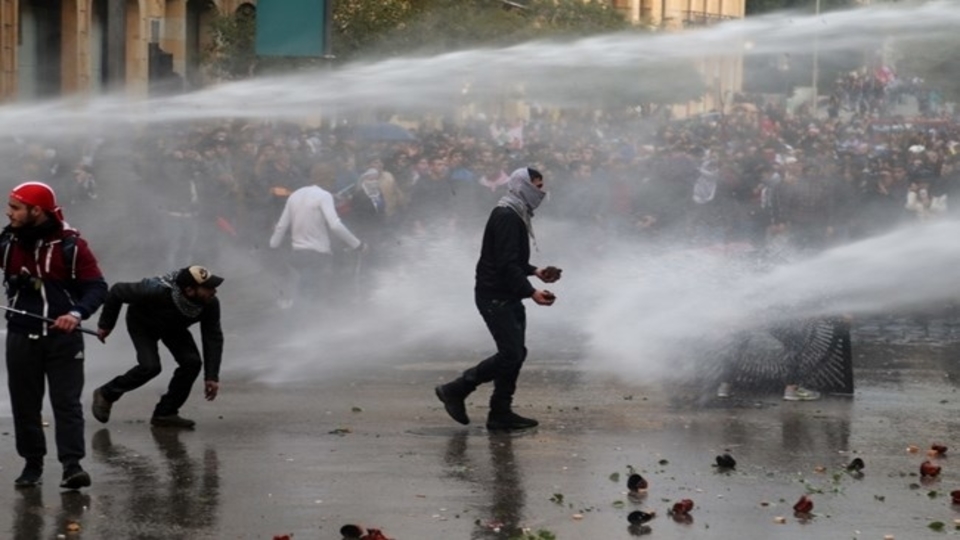Lebanon saw a fresh round of protests on January 18, Saturday, after prime minister designate Hassan Diab failed to announce the formation of his cabinet on Friday. The protesters gathering in the capital Beirut from other parts of the country tried to march towards the parliament, however, the police and the Internal Security Forces (ISF) used tear gas and water cannons to stop the demonstrators, injuring around 400 people.
The police also arrested some of the protesters. The protests continued for a second day, on January 19, Sunday, when another 100 people were injured.
Saturday’s protest was one of the major demonstrations in recent days. Lebanon has been witnessing popular protests since last three months against the corrupt political system, rising inequality and unemployment in the country. Earlier in the week, protests were organized in front of bank offices, including at the Central Bank, against the curbs imposed by the banks on the withdrawal of US dollars. The US dollars is used as an alternative currency by the people for their daily use.
Protesters blame widespread corruption and inefficiency of the political elite for the problems of public service delivery and the poor economic situation in the country. They have been demanding systemic reforms, including changes in the sectarian quota system in the parliament and the executive, which was introduced after the civil war (1975-1990) in Lebanon.
Hasan Diab was elected after almost a month of negotiations in December, to replace the caretaker prime minister, Saad Hariri, who had resigned on October 29 following weeks of protests against his government’s failure to tackle the economic crisis in the country and its plan to impose certain new taxes on the people.
The failure to announce the formation of the cabinet by Diab is being attributed to certain last-minute differences between the political formations supporting him. Hezbollah, one of the leading parties supporting Diab had expressed objections to his plan to form a technocratic cabinet earlier.
President Michael Aoun has called for an emergency security meeting today to discuss the situation.





